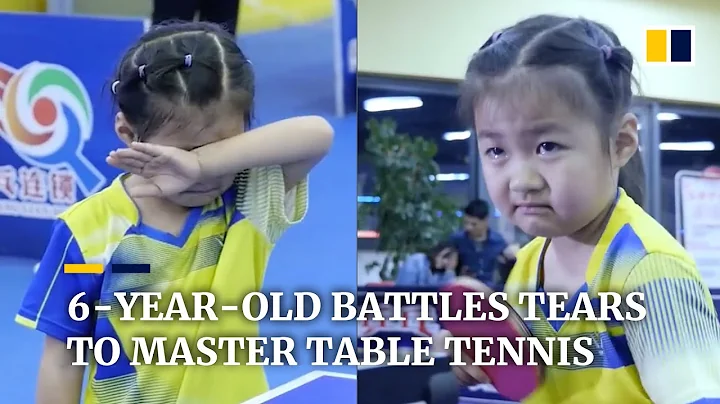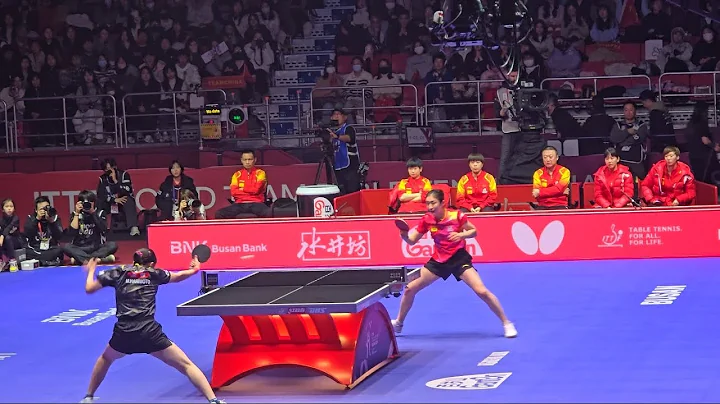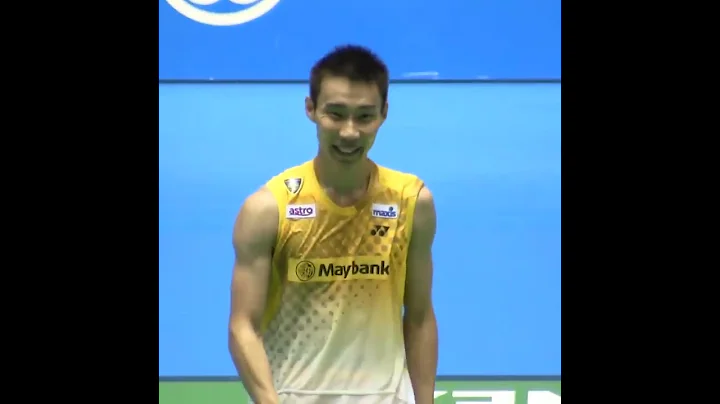Japanese men's table tennis has made great progress in recent years and has replaced South Korea as the biggest opponent of Chinese men's table tennis. Their two main players Mizutani and Takaki Niwa are both in their prime. Although their current strength is not as good as Malone and Zhang Jike , in the Tokyo Olympics 4 years later, the Japanese men's table tennis Fighting locally will invisibly increase their power power, which is likely to cause greater trouble for China.  (The first one from the left is Niwa Takaki, who helped the Japanese men's table tennis team win the Rio Olympic Games silver medal.)
(The first one from the left is Niwa Takaki, who helped the Japanese men's table tennis team win the Rio Olympic Games silver medal.)
The 22-year-old Niwa Takaki is the second figure in Japanese men's table tennis. He once participated in the Japanese league at the age of 14, creating the youngest Participation records. Like Fukuhara Ai, Niwa Takaki was once called Japan's "table tennis prodigy", and behind this prodigy is a former Chinese Olympic table tennis champion.  (The first one from the left is Wei Qingguang, partnering with Chen Longcan in doubles.)
(The first one from the left is Wei Qingguang, partnering with Chen Longcan in doubles.)
Many people no longer remember Wei Qingguang, the late blooming Olympic champion. The last time people remembered him was the 2011 Olympic gold can scandal. He asked his domestic friend Chen Longcan to use the gold can he won when he won the Olympic championship to test whether it was fake. Wei Qingguang is now a successful businessman in Japan and a table tennis coach at Aomori Yamada Academy. Aomori Yamada Academy is known as the cradle of Japanese table tennis . There are many Chinese coaches in it, among which the outstanding player Takaki Niwa was trained.
The older generation of table tennis fans remember this simple-looking man from Guangxi. He was only selected for the national team at the age of 23. At that time, the national team was adjusted once a year. If the performance was not good, it would be adjusted out after one year. Wei Qingguang gradually gained a foothold in the national team through unremitting efforts, including winning the Asian Championship men's singles championship in 1986. Since 1987, Wei Qingguang and his partner Chen Longcan have become the key men's doubles partners of the national table tennis team. In the 1987 World Table Tennis Championships, Wei Qingguang and Chen Longcan won the men's doubles championship.  (Wei Qingguang and Chen Longcan won the gold medal.)
(Wei Qingguang and Chen Longcan won the gold medal.)
At the 1988 Seoul Olympics, the Chinese Olympic team suffered setbacks and only won 5 Olympic gold medals, while Wei Qingguang and Chen Longcan cooperated to win the table tennis men's doubles. gold medal. In the Olympic men's doubles final that year, Wei Qingguang was full of passion. He would punch and roar when he hit a good shot, which was very inspiring. Wei Qingguang, a late bloomer, finally reached the peak of Olympic .
However, his emergency situation began to decline, and he won third place in the men's doubles at the World Table Tennis Championships in 1989. After the 1990 Beijing Asian Games, Wei Qingguang chose to retire. At that time, many Chinese table tennis players went to play at the Japanese Table Tennis Club, and Wei Qingguang also followed in 1991.  (Wei Qingguang went to Japan to continue his table tennis career.)
(Wei Qingguang went to Japan to continue his table tennis career.)
Wei Qingguang himself did not expect that he would stay in Japan from then on, become a Japanese citizen, and achieve his career there. Wei Qingguang quickly became a big celebrity in Japan. He won the Japanese men's singles championship 4 times, and also won the Japanese men's singles championship once at the age of 42. He can be called a Japanese table tennis legend.
Wei Qingguang became a Japanese national in 1997, changed his name to Wei Qingguang, and represented the Japanese team in international competitions. In the 2000 Sydney Olympics, Wei Qingguang reached the third round in men's singles and lost to Waldner 1-3. In the men's doubles competition, he and his teammates lost to China 0-3 in the third round. Liu Guoliang / Kong Linghui combination.  (He once worked part-time in a supermarket.)
(He once worked part-time in a supermarket.)
As a Japanese player, the biggest trouble Wei Qingguang caused for Chinese men's table tennis was the 1998 Osaka Asian Championships. At the beginning, Wei Qingguang was talking and laughing with the players and coaches of the Chinese team, and seemed very cordial. Wei Qingguang's draw was very poor, and he repeatedly missed the top players in China. Unexpectedly, this veteran who had not participated in international competitions for many years actually defeated , Ma Lin, and Liu Guoliang to reach the finals, and finally won the runner-up. As Wei Qingguang defeated Chinese players in a row, it seemed a bit awkward for him to meet with the Chinese team members again. At the same time, some domestic reports began to criticize Wei Qingguang, just as they criticized Xiaoshan Zhili .  (Wei Qingguang played in Japan until 2007 before retiring.)
(Wei Qingguang played in Japan until 2007 before retiring.)
Wei Qingguang explained why he became a Japanese citizen. After playing in the Japanese league for several years, he wanted to return to China and settle down, but the position he was assigned was not good. "I don't have the skills. Look at , Qiao Hong, and the others, they are all directors now after returning to China." Wei Qingguang once said. Qiao Hong is also the Olympic champion. After retiring, she played in the Japanese league. Later, she returned to China and became the assistant to the president of the Guangdong Sports Technology Institute and the director of the Table Tennis Management Center.  (The retirement ceremony is very grand.)
(The retirement ceremony is very grand.)
becomes a Japanese citizen, which will give Wei Qingguang better development opportunities. Wei Qingguang retired in 2007 and later served as the coach of the Japanese national team , but resigned in 2010 to concentrate on coaching Aomori Yamada Academy and running his sports equipment business. Now his company is famous in Japan and he has become a successful businessman. At the same time, Wei Qingguang also trained his proud disciple Niwa Takaki.  (He served as the coach of the Japanese national team for a while.)
(He served as the coach of the Japanese national team for a while.)
Niwa Takaki is 22 years old. He entered Aomori Yamada Academy when he was 7 years old and became a disciple of Wei Qingguang. Under the training of Wei Qingguang, Niwa Takaki participated in the Japanese League at the age of 14 and was known as the Japanese table tennis prodigy. In the 2012 London Olympics Asian Qualifiers, 17-year-old Niwa Takaki defeated Ma Long, who was ranked number one in the world at the time, 4-2. This was the first time that he caused trouble for the Chinese men's table tennis team. However, in recent years, Niwa Takaki has not made much progress. At the Rio Olympic Games , he reached the quarterfinals and lost to Zhang Jike 1-4. At the recent China Table Tennis Open, he lost again to Zhang Jike 1-4 in the second round. In addition, in the semi-finals of the men's doubles competition, he and his teammate Yuya Oshima lost 20 to 3 to Malone/Zhang Jike.  (cultivated his proud disciple Niwa Takaki.)
(cultivated his proud disciple Niwa Takaki.)
Niwa Takaki has lost to Chinese men's table tennis players continuously over the years, but the Chinese men's table tennis players must not take it lightly. Because in the Olympics four years later, Japanese men's table tennis will compete locally. It should be noted that Niwa Takaki's master Wei Qingguang relied on Japan's home court advantage to upset Ma Lin and Liu Guoliang in the Asian Championships. In the 1994 Hiroshima Asian Games, 30-year-old Chili Koyama also won the championship by virtue of her home court advantage, beating Qiao Hong and Deng Yaping . In the Tokyo Olympics 4 years later, the Chinese men's table tennis team must not be careless.





















